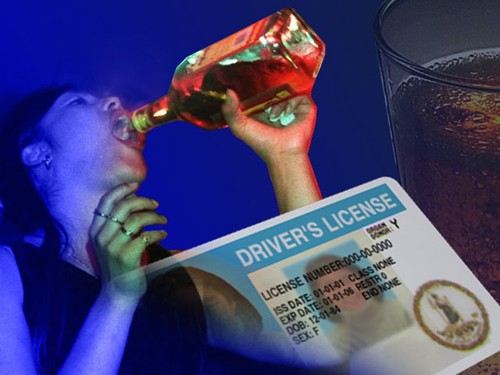Many students are not aware of the consequences of underage drinking.
“”Students are going to make choices about their behavior and will choose to drink or not. Obviously everyone is aware that underage drinking is illegal, but what I encourage people to do is to look at all the activities that are available that don’t involve drinking at all,”” said Lynn Reyes, alcohol and other drug prevention specialist for Campus Health Service.
“”The most common violation of the student code of conduct relates to alcohol,”” said Jason Casares, assistant dean of students and campus safety coordinator at UA.
Sarah Casares, senior coordinator for residential education and student behavioral education, said, “”Cases that occur in Residential Life that are referred to the Dean of Students (Office) generally are ones that called for UAPD involvement.””
At residence halls, resident assistants are the first to make contact with the student in question and then UAPD becomes involved.
“”Then an incident report is written and submitted. A community director reviews the report and if the police was involved, they would forward it to the Dean of Students Office to a hearing office who would handle it from there,”” Sarah Casares said.
Once the student’s violation of the student code of conduct is forwarded to the Dean of Students Office, every case is dealt with individually, according to Jason Casares.
They will receive a letter from the Dean of Students Office with a scheduled date and time that they must meet with them. Students are given the choice of bringing an adviser to the meeting. At the meeting, a hearing officer from the Dean of Students Office goes over the allegation with the student, and the student is given the opportunity to respond to it.
If the student is found to be responsible for violating the student code of conduct, the hearing officer will usually assign a sanction — usually community service hours, an alcohol education class, etc. — for them to complete. “”The UA does the same sanction that the Tucson community does. So the Dean of Students Office will send students to us at Campus Health to do the part of their sanction where they’re asked to do an alcohol education class,”” Reyes said.
“”Essentially, the goal here is to provide students with an educational opportunity,”” Jason Casares said. It encourages UA students to take on responsibility for their own actions and take on the consequences “”to learn from their mistakes or thinking errors we have all experienced at one point in our lives,”” Jason Casares said.
These mistakes involving alcohol result in consequences from a verbal warning to expulsion from the UA, Jason Casares said, though he also goes on to say there are many different sanctions offered in between the extremities.
“”Expulsion is rare because the primary goal is to educate students and help them in their personal growth and development,”” Jason Casares said.
Campus Health offers diversion classes on campus equivalent to the ones offered by the city of Tucson.
“”Each class at Campus Health is two hours long and must be taken in three consecutive weeks for a total of six hours. The city offers the same class all in one sitting, also for a total of six hours,”” Reyes said. “”Our curriculum talks to students about moderation skills. We want to help them to identify ways that they can be safe other than the legal aspect, but that also helps reduce negative aspects associated with alcohol consumption.””
Residence Life also offers many educational options for students when they first move into residence halls and throughout their stay in order to help them avoid trouble with alcohol and inform them on what to do if they receive a violation citation.
“”We do a lot of education upfront about our policies because it is against law and against university policy for students under age 21 to consume alcohol in the residence halls,”” Sarah Casares said. “”When students move in we ask for them to sign an agreement, which is a form that says if the violation were to actually happens you could be evicted from the hall.””
Pre-business major Gerardo “”Jerry”” Acosta is of age now but said he knew people who were caught drinking underage.
“”I think the best way to avoid those situations are staying away from huge crowds or parties,”” Acosta said.









